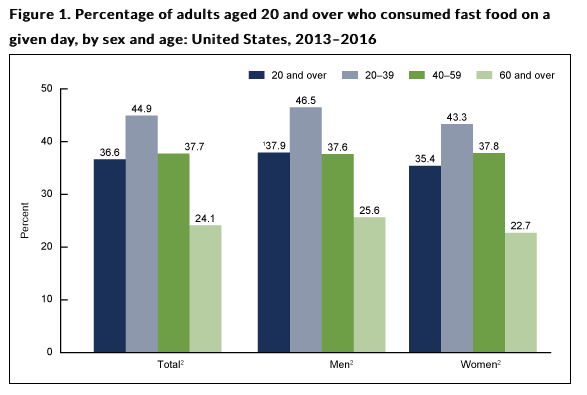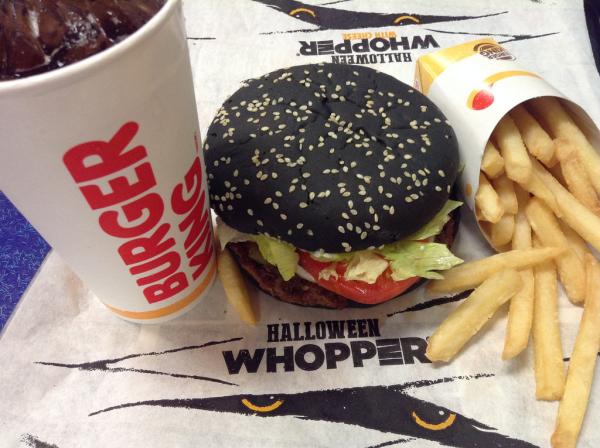One thing is for sure: the fast-food industry sure knows how to market its burgers, fries and breakfast sandwiches.
In the first federal study focusing on fast-food consumption, the Centers for Disease Control and Prevention announced Wednesday that on any given day in America more than one third of adults are eating this type of offering.
Researchers, surveying adults over a recent three-year period, learned that 36.6 percent of them reported consuming fast food at least once during the previous 24 hours. Nationwide, that finding translates to roughly 85 million adults.
The news from this study is particularly troubling for African-Americans, who reported consuming the most fast food. Meanwhile, a separate study released yesterday in the Journal of the American Medical Association found that the "Southern-style" diet – one rich in fat, sugar and sodium – that's enjoyed by many African-Americans is a primary driver of high blood pressure and heart disease. In addition, researchers noted they were less likely to eat healthier foods, like vegetables, fruits and whole grains that could lower their health risk.
As for the CDC study, titled "Fast Food Consumption Among Adults in the United States, 2013–2016," some results were surprising:
Contrary to common belief that lower-income adults visit fast food restaurants more often than those who earn more, the opposite was found to be true. The CDC reported that 31.7 percent of low-income adults ate fast food, as compared to 36.4 percent of middle-income adults and 42.0 percent of higher-income adults.
That's interesting, something we pointed out in May 2017.
"Income and wealth are not drivers of fast-food consumption," wrote Dr. Chuck Dinerstein, in his piece "It Isn't Poor People Who Eat the Most Fast Food." "Fast food is not the fate of the poor. It is driven by access, convenience, and personal interest in their health."
Returning to the CDC's report, it stated that "Among men and women who consumed fast food, a higher percentage of men ate it for lunch, while a higher percentage of women ate it as a snack."
Also noteworthy was this: Instead of falling victim in this area to habit-forming behavior as adults age, the study showed that fast-food consumption actually lessened over time.
 "The percentage of adults who consumed fast food decreased with age: 44.9% among younger adults aged 20–39," the CDC noted, "37.7% among middle-aged adults aged 40–59, and 24.1% among older adults aged 60 and over. This pattern by age was observed for both men and women." (Table courtesy: Centers for Disease Control and Prevention)
"The percentage of adults who consumed fast food decreased with age: 44.9% among younger adults aged 20–39," the CDC noted, "37.7% among middle-aged adults aged 40–59, and 24.1% among older adults aged 60 and over. This pattern by age was observed for both men and women." (Table courtesy: Centers for Disease Control and Prevention)
Other findings were more predictable:
- Men tend to eat fast food more that than women (38 percent vs. 35 percent)
- Non-Hispanic black adults had the highest percentage of consumption: 42.4 percent, compared to 37.6 of whites, 35.5 percent of Hispanics and 30.6 percent of Asians.
- The group with the highest percentage of fast food consumption was black women, at 42.9 percent, versus 36.3 percent of white women and 35.8 percent of Hispanic females.
As is widely known, the CDC notes that "Fast food consumption has been associated with increased intake of calories, fat, and sodium," which contributes to heart disease, obesity and type 2 diabetes, among other diseases.




